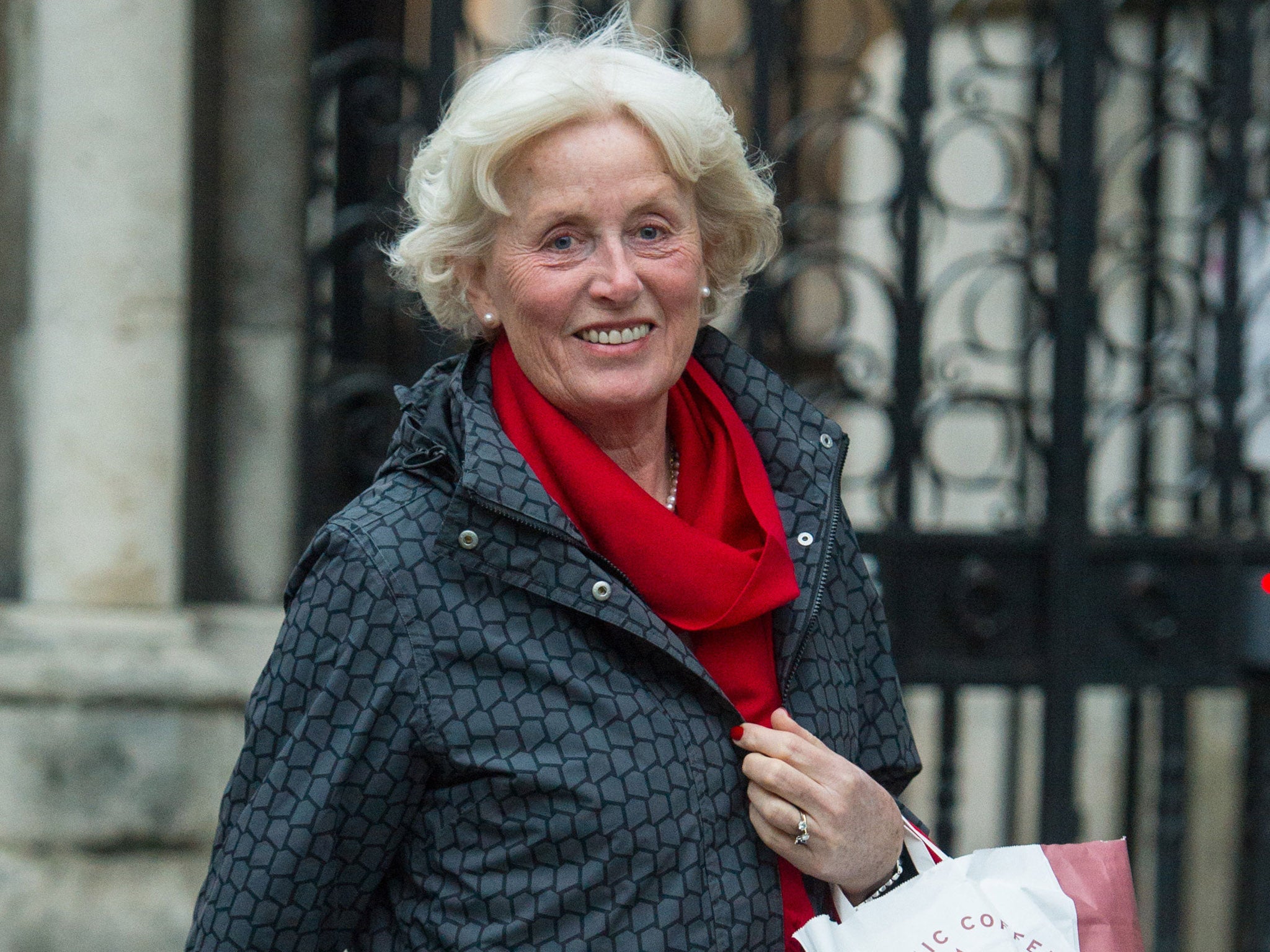I'm so thankful my parents divorced – it horrifies me that our Supreme Court has denied Tini Owens that right
She must now stay married to Hugh Owens until 2020, when they will have been separated for long enough to justify the divorce. This is frightening, unjust and archaic


Tini and Hugh Owens were married in 1978. They had two children together, who are now grown up. Forty years later, Tini is desperate to leave her husband.
Desperate enough to beg the Supreme Court for the right to end her marriage, based on how broken she feels it is and how intolerable she says her husband’s behaviour is towards her.
Hugh is refusing to let her go. As she tells it, Tini has been contemplating divorce since 2012 but only left the home she shared with Hugh in February 2015.
Her plea to divorce her husband has just been denied unanimously by judges in the Supreme Court, on the basis that she cannot prove his behaviour is unreasonable enough and because our legal system still demands that there be fault in a marriage to make a divorce legally viable.
Her woefully unhappy marriage is, apparently, not unhappy enough to qualify for divorce – surely a decision that ought to belong to Tini, rather than a panel of well-educated strangers.
Tini Owens must now stay married to Hugh Owens until 2020, when they will have been separated for long enough to justify the divorce. This is frightening, unjust and archaic.
For Tini’s sake alone – not to mention any other people legally trapped in marriages that have broken down – we must urgently address our divorce laws and update them to reflect modern values such as, oh, I don’t know, a woman’s autonomy and the right to leave someone who is making you deeply unhappy.
It is sinister and profoundly inappropriate for a legal system to order a woman stay in a relationship that is irrevocably broken, with a man whose behaviour she can no longer tolerate.
Tini’s solicitor says, unsurprisingly, that she is “devastated” by the decision and “unable to move on with her life”. It is yet another example of our legal system wilfully denying a woman’s agency, endangering her and undermining her right to choose who she is legally bound to by marriage. It is deeply troubling to see any woman unable to leave a relationship when she wants to.
We do not know the nature of the Owens marriage intimately ourselves, and we cannot know what it has been like these past four decades. Perhaps there was love at the beginning; perhaps it even lasted years.
What we do know is this: here is a woman pleading to leave a marriage in which she is profoundly unhappy. Here is a woman declaring that her husband’s behaviour is inappropriate – enough so that she wants to sever a decades-long relationship. It is difficult for me to believe that someone would do that just because, as Hugh suggests, she is “bored”.
Divorce may not be a happy outcome in a society preoccupied with romantic love, but it is a necessary and sometimes deeply important option. I am a child of divorce and I will always be grateful my parents were able to sign the right paperwork to end their marriage.
They loved one another at the beginning, too, but love is breakable and humans are fallible; that much is clear from the staggering rates of divorce across the world.
Divorce ought to be a human right, fastidiously protected. It is often the best outcome for two people whose relationship that has broken down. When one party wants out, especially if it’s a woman who feels controlled, manipulated or frightened, they should be allowed to get out as safely and easily as possible.
Sometimes it’s difficult to quantify or prove what went wrong in a marriage, and so we should introduce no-fault divorce and empower people to end the legal unions that bind them simply because they are no longer happy or comfortable.
Tini Owens is trapped in a marriage she wants to leave – for another two years. This is simply not acceptable. For her sake, and to protect our desperately important right to choose who we are in a relationship with, we must make it easier to get a divorce in the UK. The next time we speak about this, it should be in parliament.




Join our commenting forum
Join thought-provoking conversations, follow other Independent readers and see their replies